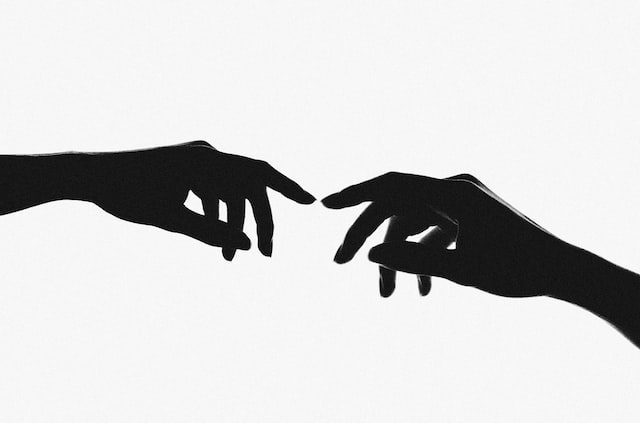
If you’re not in the arena also getting your ass kicked, I’m not interested in your feedback.
–Brené Brown
Some of the most impactful feedback—criticism— that I have ever received has come from people I have never asked. I wasn’t seeking it out. It just came to me, with a little bow, and hidden behind it was a deeper truth that I was not prepared to embrace, initially.
That is to say, it comes from the people who are not in the supposed arena with me getting their asses kicked. It comes from people who don’t necessarily have my best interests in mind, but only their own. More so, it comes from a place of them confirming what they already know and rejecting whatever it is that I am sharing as advice.
Advice, criticism, and feedback are all forms of suggested correction. The operative word here is suggested. For the remainder of this piece, I am going to use the terms interchangeably.
I’ll Pay for Your Advice, but I Won’t Take Free Advice
Do you ever notice that we often will pay people to offer us criticism and we happily take it? And in other instances, the free advice—or criticism—that we are given, we will find ways to reject and justify why that form of advice or criticism is not welcome, nor worthy of being accepted.
I know that a lot of influential experts hand out advice themselves, and while they do, they caution us about how we are to receive criticism. They deliver to us the prerequisites for how we should accept the advice of those who are in our inner circle, or in the arena with us.
As for the critics? Well, if they are not looking out for our best interests, if they aren’t willing to compassionately share their concerns, then we should altogether avoid whatever it is they are offering.
They say things like:
“If you have never been married, or you have had a history of bad relationships, I wouldn’t ask you for marriage advice.”
“You wouldn’t ask someone who has filed bankruptcy for financial advice.”
“You wouldn’t go to a therapist who is herself, seeing a therapist for her own issues.”
How about this one?
“You shouldn’t take advice from an oncologist about chemo therapy unless that oncologist has already survived cancer.”
The last one I made up. I am using that as my logical guidepost to point out how flawed the other examples are.
Why is it that people want us to be careful about who we take advice from?
Well, to start, if we listened to all the advice, feedback, and criticism that we received, we could get into a pesky little habit of internalizing much of that information as a personal attack on our identity and it can really eat away at us. So, we want boundaries to protect ourselves from the negative output that we receive.
I would agree that there is a lot of commentary that is gifted to us that we don’t want to accept. If I offer you a basic concept that I want you to consider, and your feedback includes insulting the vehicle I drive, the location in which I live, or the clothing I wear as a reason why my advice is not sound; well, then I know that this is a critique that won’t benefit me based on the pithy examples of attack.
But, if another is willing to share how the intended message I sent out is received or interpreted in a way that isn’t in line with my intent, then I do need to grant space for a pause and reflection so that I can better deliver my message. This falls into an intent versus impact situation that requires processing, not dismissal.
We want to discern the junk from the good stuff. If the criticism I receive is all superficial, then it’s not worth my time to invest energy harboring it.
For instance, Brené Brown often talks about how she received a lot of superficial criticism after one of her TED talks went viral. She received toothless attacks about her appearance and she knew that she had to dismiss anything that sat on the surface that could be easily washed away. And rightfully so. Ad hominem attacks are trivial and meaningless, and precisely fallacy. They are of no importance to the grander scale of things.
What happens when criticism comes from those that we did not ask for it? What do we do then? What happens if it comes from someone we were once connected to? What about when it happens to comes from those we are not connected to, but it’s demonstrably constructive criticism that could improve how we deliver our message?
As a writer, I am an open target for criticism. That goes with the territory. Similarly, Brené Brown speaks to this well-known fact. She has said in her talks that, “You will get your ass kicked. If courage is a value you hold, this is the consequence.”
Criticism is the consequence.
But it criticism entirely bad? I would argue that it is not. And I have written on this several times before.
Criticism can lead to connection.
As I stated earlier, much of the criticism that I have faced has actually impacted me for the better. It did not come with endearing compassion. It did not come with consideration for what I have been through. It came from places of anger, fear, scarcity, and misconception, but it was still valid when I was willing to look deeper.
From much of the criticism I have received, I realized that the feedback I was receiving was valuable. I missed some important steps that, once accepted, I was able to better deliver a message so that my advice didn’t offend as many as the previous attempts. I depend on my audience to help me. If I didn’t take into consideration what my audience felt when they heard or read my work, my audience would significantly shrink.
Who Should You Take Advice From?
Let’s go back to this idea that we shouldn’t take financial advice from someone who has filed bankruptcy. What do we say about Dave Ramsey then? If you aren’t familiar with this story, I urge you to check it out. Since the days of filing for personal bankruptcy, he has created an empire from teaching others how to get out of debt and learn to save money.
So, would I take advice from someone who has filed bankruptcy? Absolutely. Ramsey learned from his mistakes and now shares his story with millions of people every year and effectively, helps others pull themselves out of debt. Had I not listened to Ramsey’s advice, I would be able to say that I am a graduate of the Dave Ramsey program- Financial Peace University. I learned a lot of valuable lessons from a man who once filed for bankruptcy.
Would I take advice from someone who isn’t married, has been divorced, or who is not in a current significant relationship? Of course I would. What did that person learn from what they have experienced? Why would I deny advice from someone simply because they are not living in exactly the same situation as I am?
Would I see a therapist who is seeing a therapist herself? Well, let me counter that with another question: would you seek advice from a therapist who wouldn’t see a therapist herself?
Brené Brown often speaks about her therapy sessions with her therapist. So, to save word space, I think it’s evident that we would in fact, seek advice from others who are also seeking advice and counsel from others.
More than that, we ought to applaud others who are willing to reveal to us that they don’t think they have it all figured out. I am more concerned about those who believe they don’t need therapy and those who find ways to exclude the feedback of others by separating them in a us vs. them mentality.
I have had over a dozen therapists in my adult life, and I have used life coaches as well. Does that mean that I am not worthy of sharing my ideas? Of course not. Seeking help does not mean that the help you are offering is less worthy.
Even more, Jesus often gave out advice that wasn’t asked for. If anything, for me, I search for the possibility that Jesus is speaking to me from the criticism I receive. Maybe I just have to dig deeper to understand it? Maybe the criticism came to me in a parable that I need to sit with? If I readily dismiss criticism that comes outside of the parameters of what I think is constructive, woe to me.
Is it Beneficial?
Here’s how I look at criticism, or feedback, or advice, whichever way you want to term the idea: Will it benefit me or harm me if I take what is offered? And how will it harm me?
When considering whether or not it will harm me, I have to really ask myself this: Will it harm me or my ego?
Many of us feel comfortable within echo chambers. We say “I am not taking advice from someone I disagree with” or “I will only take advice from those I respect”. What are the qualifications of that respect, I have to wonder?
Do we only have respect for others who think that what we have to say is amazing? Do we constitute the respect based on the positive feedback loop that others provide for us? If that is the case, then what we are saying is that criticism is bad, and it’s especially bad when it comes from those who don’t think that everything we have to say is phenomenal.
Essentially, we are saying that we should only take advice from those who will always provide for us a confirmation bias so that we can continue feeling safe and warm without any opposition.
How will that challenge me? How will that help my growth? If I readily dismiss the “ugly” criticism, I could be excluding myself from the potentiality to reach more people. Ultimately, I want to reach more people, not less.
As a writer, I obviously want everyone to love all that I offer. But if I dismiss the feedback that puts my ego in a rather defensive position, what does that say about me?
It would say that I think I am above reproach. It would say that I think that I am smarter or better than others. It would say that I only want others to confirm my thoughts and content. Doesn’t it? And if that’s all I am after, I could just as easily draft my own commentary under pseudo names to make myself feel better.
Of course, people in my inner circle are going to be more compassionate about how they critique my work. But, if I apply this standard that you must be in the arena with me in order to be worthy of giving feedback; I could easily tell my husband: “You are not in this arena with me, you aren’t even on my level, you don’t even enjoy writing, let alone reading, so why would I listen to you?”
Even from within my own inner circle, I could find cause to dismiss the criticism that makes me feel uncomfortable. But change doesn’t come from comfort, it comes from discomfort.
Without expansion on how we should and should not accept feedback, we can create bigger conflicts than are necessary.
I receive a lot of feedback that I didn’t ask for. But I won’t reject it entirely. I have to process it. I have to then take the hard position of mentally sitting myself down and asking myself if this information that I did not ask for, could actually help me with my approach.
More than that, as grueling as it is, if I am in a position to advise others, I can’t hide from the critique of those I am willingly and openheartedly giving my advice to. It’s exclusionary. It’s limiting.
I won’t limit my arena. And if I am being honest, I think we are all in the same arena. The arena is life, and we are all fighting to figure it out.












